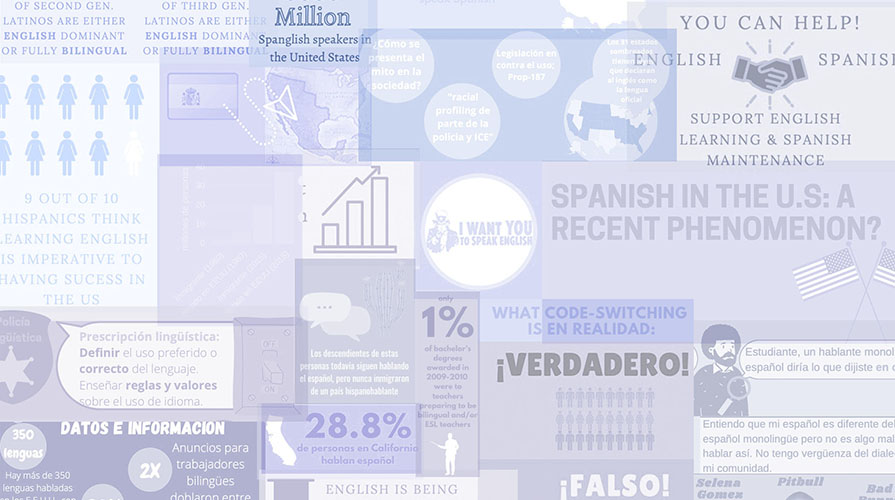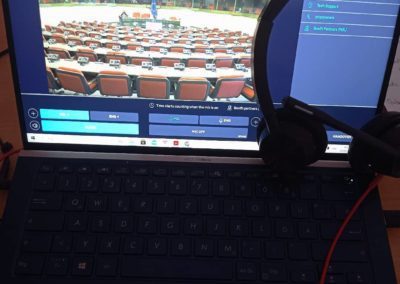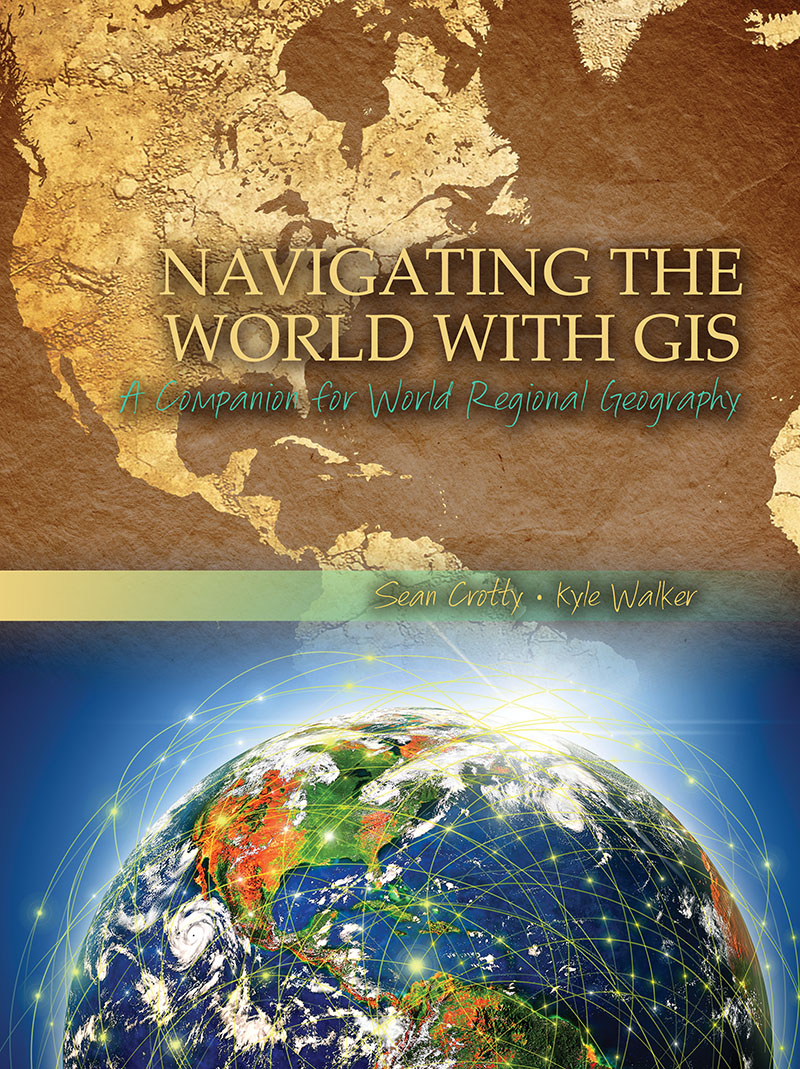Navigating the World of Remote Spanish to English Interpretation: Opportunities and Insights
Navigating the World of Remote Spanish to English Interpretation: Opportunities and Insights
Introduction
With great pleasure, we will explore the intriguing topic related to Navigating the World of Remote Spanish to English Interpretation: Opportunities and Insights. Let’s weave interesting information and offer fresh perspectives to the readers.
Table of Content

Navigating the World of Remote Spanish to English Interpretation: Opportunities and Insights
The globalized world demands seamless communication, and language interpretation plays a crucial role in bridging cultural and linguistic divides. Remote Spanish to English interpretation has emerged as a vital service, connecting individuals and organizations across borders, fostering understanding, and facilitating progress in diverse fields. This article delves into the intricacies of this profession, exploring its nature, benefits, and the path to success.
Understanding the Role of a Remote Spanish to English Interpreter
Remote Spanish to English interpreters act as linguistic mediators, facilitating communication between Spanish and English speakers in various settings. Their responsibilities go beyond simply translating words; they must accurately convey nuances, cultural contexts, and the intended meaning of the speaker. This involves:
- Accurate and Precise Interpretation: Interpreters must possess a deep understanding of both Spanish and English, including their regional variations, technical jargon, and cultural idioms.
- Real-Time Communication: Remote interpreters work in real-time, requiring quick thinking, strong listening skills, and the ability to accurately convey information with minimal delay.
- Cultural Sensitivity: Interpreting goes beyond language; it involves navigating cultural differences, understanding social cues, and ensuring respectful communication between parties.
- Confidentiality and Professionalism: Interpreters handle sensitive information and must maintain strict confidentiality, adhering to ethical guidelines and professional standards.
Benefits of Remote Spanish to English Interpretation
The rise of remote work has revolutionized many professions, and Spanish to English interpretation is no exception. Remote interpretation offers numerous advantages for both interpreters and clients:
- Flexibility and Work-Life Balance: Remote interpreters enjoy the freedom to work from anywhere with a stable internet connection, enabling them to manage their schedules and personal commitments effectively.
- Wider Range of Opportunities: Remote work expands the pool of potential clients, opening doors to diverse projects and international collaborations.
- Cost-Effectiveness: Remote interpretation eliminates the need for travel and in-person appointments, reducing costs for both interpreters and clients.
- Accessibility: Remote interpretation makes communication accessible to individuals and organizations with limited mobility or those located in remote areas.
- Environmental Sustainability: Remote work reduces the carbon footprint associated with travel, contributing to a more sustainable future.
Types of Remote Spanish to English Interpretation Services
Remote Spanish to English interpretation services cater to a wide range of needs, encompassing various settings and communication modalities:
- Consecutive Interpretation: This involves interpreting after the speaker completes a segment of speech, allowing for more detailed and nuanced translation.
- Simultaneous Interpretation: Interpreters translate simultaneously with the speaker, often using specialized equipment for real-time delivery.
- Telephone Interpretation: This service connects interpreters with clients via phone, facilitating communication for phone calls, meetings, and consultations.
- Video Interpretation: Interpreters participate in video calls, providing real-time translation for virtual meetings, webinars, and online events.
- Document Translation: While not strictly interpretation, some interpreters also offer document translation services, ensuring accurate and culturally appropriate translations of written materials.
Essential Skills for Remote Spanish to English Interpreters
Success as a remote Spanish to English interpreter requires a blend of linguistic, technical, and interpersonal skills:
- Bilingual Proficiency: Fluency in both Spanish and English, including technical vocabulary and cultural nuances, is paramount.
- Strong Listening and Comprehension Skills: Interpreters must accurately grasp the speaker’s message, including subtle meanings and implied intentions.
- Excellent Communication Skills: Clear and concise communication, both verbally and in writing, is essential for conveying information accurately and effectively.
- Cultural Sensitivity and Awareness: Understanding cultural differences and social cues is crucial for navigating diverse communication contexts.
- Technological Proficiency: Familiarity with interpretation software, video conferencing platforms, and other relevant technology is necessary for remote work.
- Time Management and Organization: Remote interpreters must be able to manage their time effectively, meet deadlines, and prioritize tasks.
- Professionalism and Confidentiality: Adhering to ethical guidelines, maintaining confidentiality, and exhibiting professionalism are essential for building trust and credibility.
Path to Becoming a Remote Spanish to English Interpreter
Aspiring interpreters can pursue various paths to establish themselves in this profession:
- Formal Education: Consider obtaining a degree in translation or interpretation, which provides a comprehensive foundation in language theory, translation methodologies, and cultural studies.
- Professional Certifications: Certifications from organizations like the American Translators Association (ATA) or the National Association of Judiciary Interpreters and Translators (NAJIT) demonstrate competency and professionalism.
- Experience and Networking: Gaining experience through internships, volunteer work, or freelance projects is crucial for developing skills and building a portfolio.
- Continuing Education: Stay updated on industry trends, language developments, and technological advancements through workshops, conferences, and online courses.
FAQs about Remote Spanish to English Interpreter Jobs
1. What are the typical job responsibilities of a remote Spanish to English interpreter?
Remote Spanish to English interpreters facilitate communication between Spanish and English speakers in various settings, including medical appointments, legal proceedings, business meetings, and social interactions. They translate spoken language accurately, ensuring clarity, cultural sensitivity, and confidentiality.
2. What qualifications are required for remote Spanish to English interpretation jobs?
Typical qualifications include native or near-native fluency in both Spanish and English, a strong understanding of cultural nuances, excellent communication skills, and familiarity with relevant technology. Certifications and experience are often valued by employers.
3. How can I find remote Spanish to English interpreter jobs?
Explore online job boards, freelance platforms, professional associations, and company websites specializing in language services. Networking with other interpreters and attending industry events can also lead to opportunities.
4. What are the average earnings for remote Spanish to English interpreters?
Compensation varies based on experience, qualifications, project complexity, and client type. Rates can range from per-hour fees to project-based payments.
5. Are there any specific skills or software that are particularly beneficial for remote Spanish to English interpreters?
Familiarity with video conferencing platforms like Zoom, interpretation software like Interprefy, and translation tools like Google Translate can enhance productivity and efficiency.
Tips for Success in Remote Spanish to English Interpretation
- Invest in Professional Development: Continuously enhance your linguistic skills, cultural awareness, and technical expertise through education and training.
- Build a Strong Portfolio: Showcase your work through a professional website, online profiles, and testimonials from satisfied clients.
- Network Actively: Connect with other interpreters, industry professionals, and potential clients through online communities, professional associations, and industry events.
- Embrace Technology: Familiarize yourself with relevant software and tools to enhance your efficiency and expand your service offerings.
- Maintain Professionalism: Adhere to ethical guidelines, maintain confidentiality, and deliver high-quality services to build trust and credibility.
Conclusion
Remote Spanish to English interpretation is a dynamic and rewarding profession, offering flexibility, accessibility, and a chance to make a meaningful impact on communication and understanding. By combining linguistic proficiency, cultural sensitivity, and technological expertise, interpreters play a vital role in bridging language barriers and fostering global connections. As the world becomes increasingly interconnected, the demand for skilled and dedicated remote interpreters will continue to grow, presenting exciting opportunities for those seeking a career in this essential field.



![FORTUNE TELLING - remote learning [English & Spanish] by Classroom Postcard](https://ecdn.teacherspayteachers.com/thumbitem/Fortune-Telling-ONLINE-VERSION-ENGLISH-SPANISH-5527432-1594560071/original-5527432-2.jpg)




Closure
Thus, we hope this article has provided valuable insights into Navigating the World of Remote Spanish to English Interpretation: Opportunities and Insights. We hope you find this article informative and beneficial. See you in our next article!